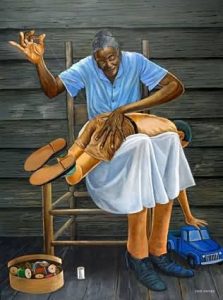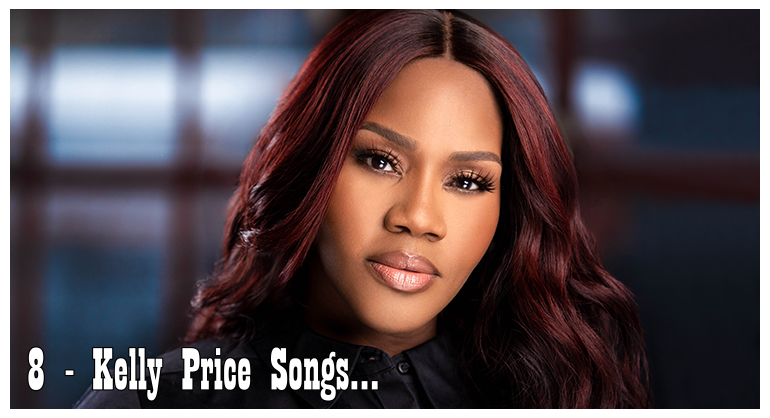(ThyBlackMan.com) So maybe your grandmother, father or mother was the type who would knock you down to discipline you. Maybe mom would throw a shoe or maybe dad would do even worse. Sadly there is a difference between discipline and abuse. And because so many African Americans cannot tell where that line is, the legal system has drawn it clearly for you. There are many problems with the abuse that many of our parents or grandparents called discipline. So let’s jump right in and tackle the problems.
First of all, what works for one child may not work for another one. Different methods encourage, discourage and even anger different types of people – even as children. Therefore what may work on you may not work on your sister, but rather have an adverse affect. The second problem is, just as with domestic violence, child abuse causes resentment and emotional scars that sometimes never heal. These scars tend to impact the victim’s future relationships and how he/she raises children, sometimes repeating the same mistakes and creating a dangerous cycle.
The third problem with child abuse camouflaged as discipline is that it teaches violence is a solution to control people. I am not saying spare the rod, but I am saying you should know the limitations, the legalities, the rights of your children and not to provoke your children to wrath. The fourth problem is that child abuse as discipline is based on a false justification. Many of you say “I was done like that and I turned out alright“. But how do you know that and what qualifies you to make that determination? There are ways to analyze the impact of your parent’s discipline on who you have become as an adult, but that’s another article for another time.
Fifth of all, child abuse camouflaged as discipline is based on the assumption that your parents or grandparents were right in what they did. While we tend to believe that because our parents impress upon us that their ways are best, that is not always true. All of our methods can be improved upon and nobody is always right. A good parent should hope his children will find more peaceful and effective ways of motivating their children, encouraging them and discouraging undesirable behavior.
For many parents, before you blame the child, you need to look at why he or she behaves in a negative or disrespectful manner. You cannot, should not and must not say you don’t care why. Nor should you try to alleviate the behavior without understanding where it is coming from at the root and why. This is where a good stiff look in the mirror helps a great many parents discover that they are in fact part of the problem. What are you failing in when it comes to your child? Is he or she doing what they see you do? Are they the monsters you were when you were a child? Are you getting back what you dished out to your parents? Sometimes some children are just difficult and unruly, but it is more often the other things I just mentioned than simple evil or unruly children of the corn.
It is often unwise to blame the child if you are a bad example or part of the problem. It is even worse to blame the child if he or she is trying to get your attention and reaching out to you, both of which often manifest in negative behavior. If you want your children to be respectful and respectable, start by being that way towards your children. Display what you want them to be instead of just telling them, threatening them or forcing them while you walk in hypocrisy. Are you worthy of respect if you cannot even give it, parent or not? Your children are little people with feelings and rights so act like you know. And if your parents did not treat you that way, your parents were wrong. Yes I said it. As a family and relationship counselor, I have corrected more parents and grandparents than I have children. Many of them never knew about so many better ways to discipline a child.
If you feel you have to “snatch” your child, something has gone wrong with YOUR parenting. A child is not supposed to raise himself and know exactly what to do. You are the example, he or she is not. Therefore what kind of example are you setting? Do you yell? Why? do you threaten? Why? Do you abuse and call it discipline? Why? Here is a simple test. If Debo from the movie Friday pulled you into a jail cell and did you the way you do your child, would you feel abused? What does that tell you?
SHARE THIS ARTICLE WITH EVERY PARENT YOU KNOW
I am not saying you should be more of a friend than a parent. You should always make it clear that you are the parent – and a real parent is a parent for life. There are times when you may need to spank your children, but that time needs to be within the first 5 years. And at such times you would be smart to know the difference between a spanking and a “beating“. In today’s legal system, if you leave a mark, you may go to jail. And if you say “I will just go to jail then“, you are a fool and you have not heard anything I have just said as a veteran family and relationship counselor, mediator and life coach. There is nothing to gain by you going to jail for child abuse but everything to lose, especially when it is unnecessary.
You have to build a bond with your children, a bond of respect – not fear. How would you like to live with someone you are afraid of? You wouldn’t. Your children were not born with a mindset to challenge or displease you. Nor were they born as slaves with no rights. And while you can expect challenges from them as they approach age 13, age 18 and age 21, you have to realize these challenges are hormone based and not abnormal. The level of challenges they throw at you will be directly related to the relationship you have built with them all along. Therefore start building your relationship being a good example, listening to them and mutual respect their early years. no time is too early to start but waiting until they challenge you at 13 is far too late to start. A word to the wise, sometimes the challenges come from children as early as they begin to walk and those challenges must be dealt with as early as they show up, no matter how subtle.
In case you think I am just talking, I have two sons who respect me and a strong relationship with both. One is 6 ft 2 and 18 years old. The other is in his 20s and a black belt. I have been a strong example, communicated with the, allowed them to share their thoughts all their lives and respected them. Did I spank them? yes, in early years. Did i beat or abuse them? Never. They are now good, strong, caring, focused, confident and compassionate young men.
Find out what works for your child, not necessarily what your parents used to discipline you. Agree with your spouse on discipline, not abuse. If the two of you are not on the same page, you run the risk of children playing both sides against each other. If and when they do, they are not being evil or intentionally deceptive. They are simply trying to have their way. That being said, be careful how you label your children and don’t call them “bad” because words have more power to influence and impact than you may realize.
Patience, communication, building relationships early, listening, empathy, setting a good example and respect are key ingredients that encourage a child and discourage bad behavior. Help your children understand why rules are necessary – for discipline, for safety and because you love them. Let your children know you love them and never take for granted that they know it. They are never too old for you to tell them and show them. Tomorrow is not promised and regrets are very avoidable.
Staff Writer; Trevo Craw

















To Earl,
As a family counselor I must say the proper and reasonable discretionary use of corporal punishment is not a bad thing in the early formative years. In such cases spanking the child is not just punishment. It is also behavioral modification to help the child not to repeat the unproductive behavior. In a case where the child touches thee stove, for instance, neither parent nor child can afford that happening again.
Furthermore, I do not advocate sparing the rod because I am nowhere near as wise as God – and neither are those on the link you sent. The problems can often be temperament of the parent, failure to help the child see what he or she did wrong, abuse vs balanced use of corporal discipline and using spankings when other methods could be more effective.
It should be against the law for any adult to hit a child if he/she is not thee parent of that child.
See http://www.nospank.net. It should be against the law for adults to hit small children.